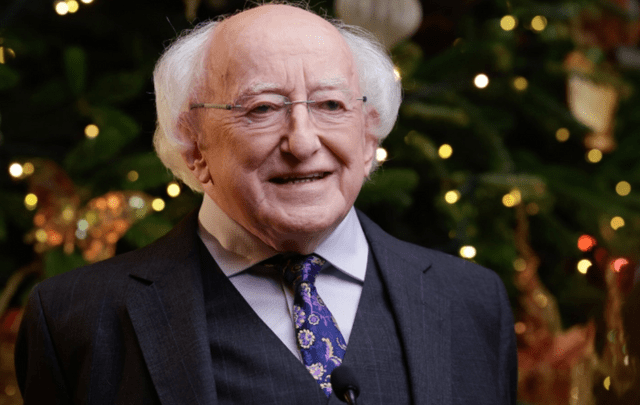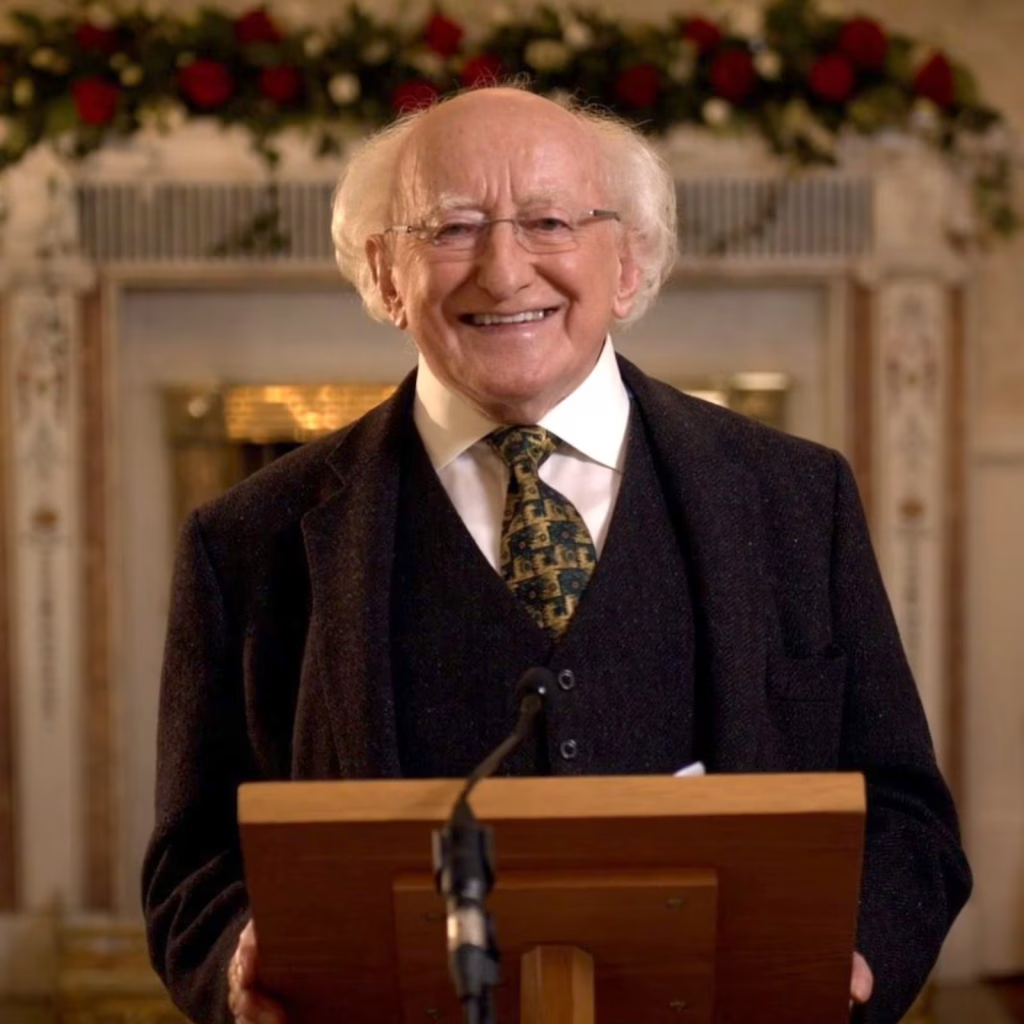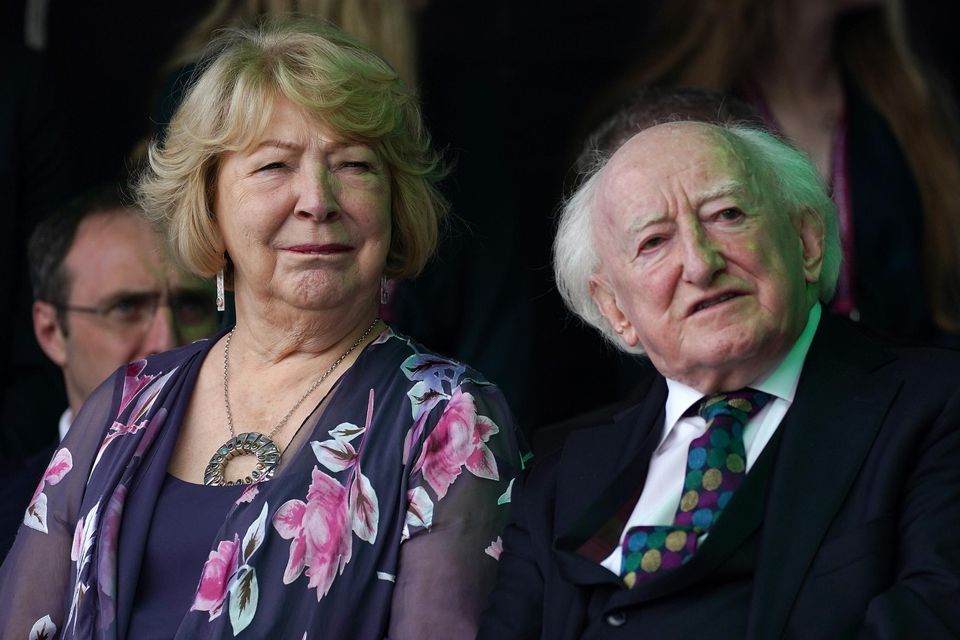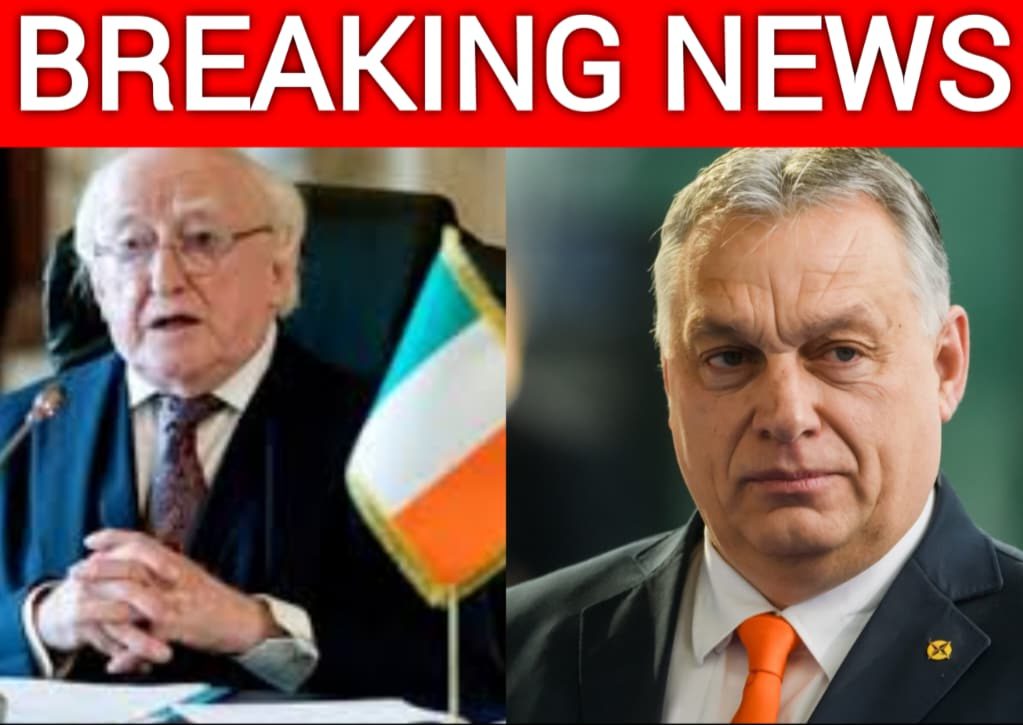Ireland’s President Michael D. Higgins Skips Meeting Viktor Orbán, Choosing EU Line Over Diplomacy
In politics, small decisions often carry weight far beyond what is visible at first glance. One such moment arrived recently when Ireland’s President Michael D. Higgins declined to meet Hungary’s Prime Minister Viktor Orbán during his visit. On the surface, it may seem like a simple scheduling matter or a political choice made in line with broader European Union dynamics. But for many watching closely, it felt like a deliberate step that spoke volumes about Ireland’s position in a Europe where relationships are becoming more complex and where diplomacy is often needed most when it seems least convenient.

Higgins has long been known as a symbolic figure within Ireland’s political landscape. While the President’s role in the Irish system is largely ceremonial, it carries an important weight in diplomacy. Meeting world leaders, engaging in dialogue, and showcasing Ireland’s willingness to listen and exchange ideas has always been a part of the President’s international presence. So, when the decision came down not to meet Orbán, the message was not one of neutrality but of alignment with the European Union’s current stance on Hungary. The EU has, in recent years, clashed with Orbán’s government on issues such as democratic standards, press freedom, and judicial independence. By stepping back from direct talks, Higgins effectively made a choice to show solidarity with Brussels over bilateral engagement.
For supporters of this move, the reasoning is clear. They see Orbán as a leader whose policies often run counter to European values, and for Ireland to roll out the red carpet would have been seen as lending legitimacy to his approach. Higgins, they argue, was not shirking his duties but rather making a principled stand that reflects Ireland’s deep commitment to the EU project. In a time when unity is crucial, Higgins’ decision reinforced the idea that Ireland stands firmly with the broader European family, even if it means leaving an awkward silence in the space where a handshake might have been.

Yet critics view the situation differently. To them, Higgins missed a valuable opportunity. Diplomacy is rarely about agreeing on every matter; it is about building bridges even when disagreements are wide. A meeting with Orbán could have been a chance to voice Ireland’s concerns directly, to communicate values face-to-face, and to keep channels open between two nations that, despite their differences, share the same European table. By not engaging, Higgins is being accused of weakening Ireland’s standing as a country that values dialogue and prefers conversation over avoidance. To many, this choice looked less like leadership and more like a retreat.
What makes this moment particularly striking is how it reflects the broader tension between principle and practicality in politics. Should leaders always engage, no matter how strong the disagreement? Or is refusing a meeting itself a powerful diplomatic tool? In skipping Orbán, Higgins has sparked a conversation that extends far beyond Ireland and Hungary. It touches on what it means to lead in a global environment that demands both conviction and flexibility.

For ordinary people watching from afar, the incident may seem like a small footnote in the complex story of European politics. But it also reminds us how personal leadership decisions shape the tone of international relations. Higgins is admired at home for his warmth, his poetry, and his presence as a unifying figure. That makes his absence in this case even more noticeable. Whether one views it as a show of strength or weakness depends largely on perspective, but either way, the choice will leave an imprint on how Ireland’s role in the European community is understood.
In the end, this was more than a skipped meeting. It was a statement. For some, it was the right one, showing Ireland’s loyalty to European values. For others, it was a missed opportunity to live out those very values in practice, through open dialogue. Politics often lives in that space of contradiction, where a decision can be both brave and disappointing at the same time.


